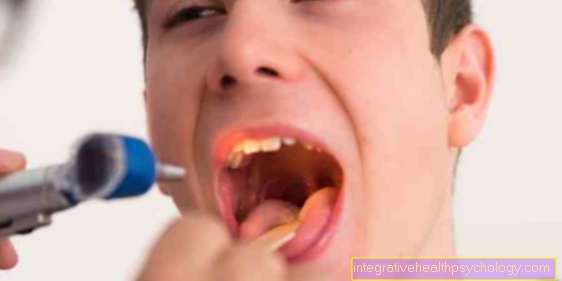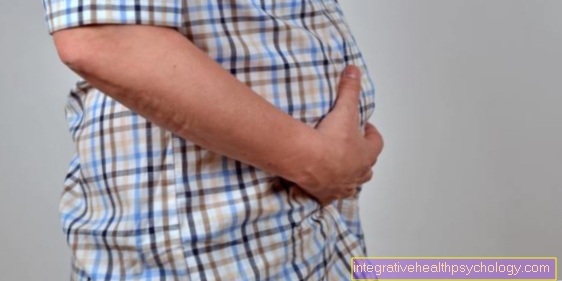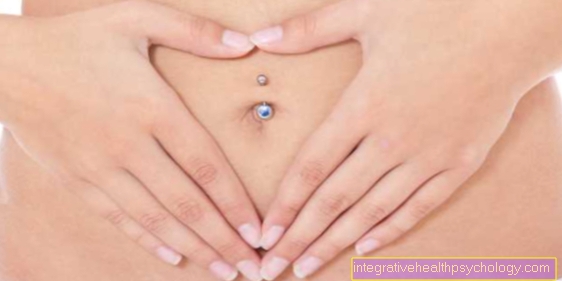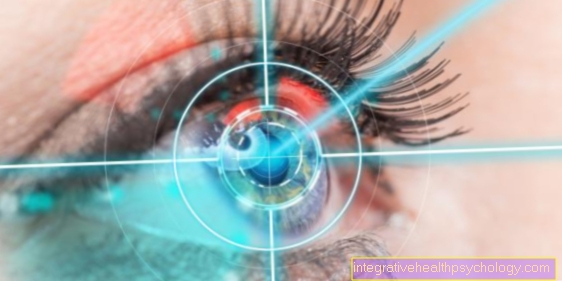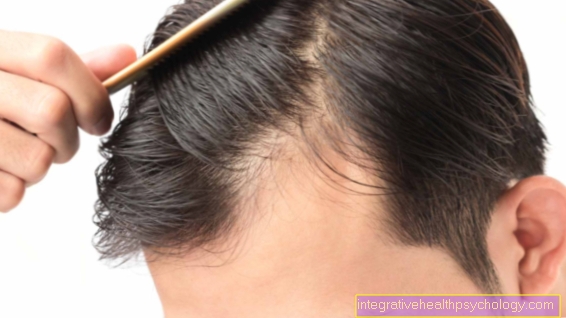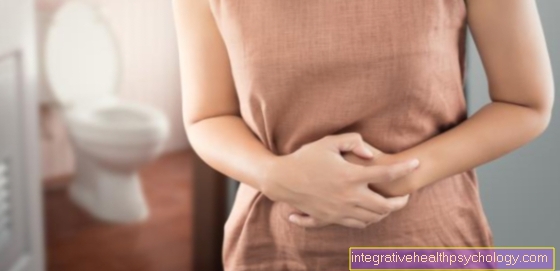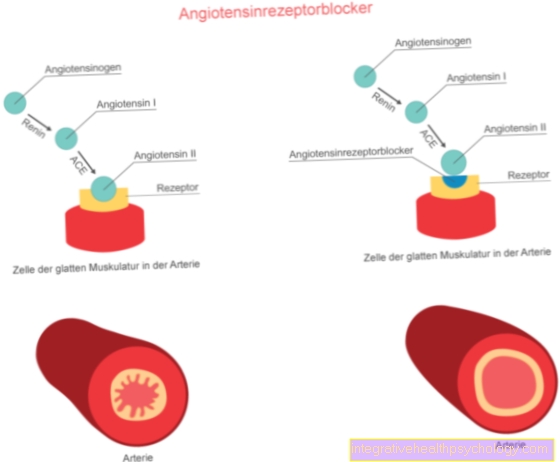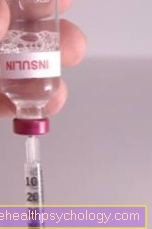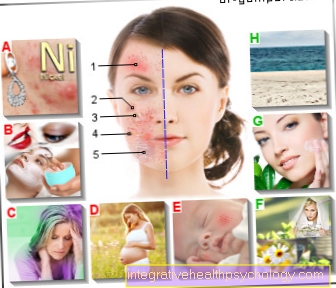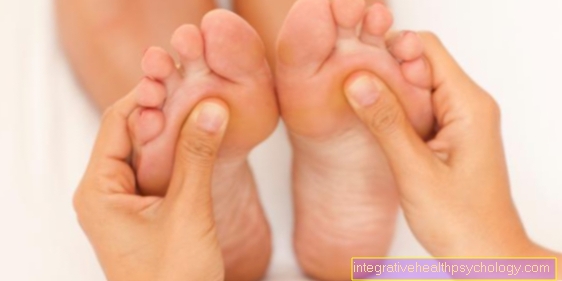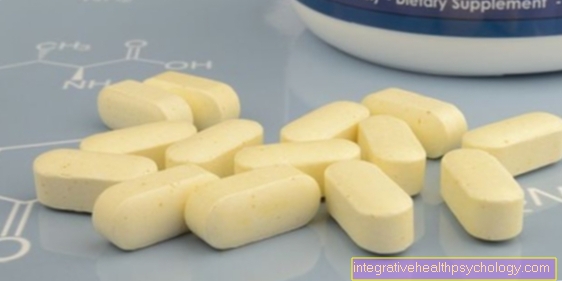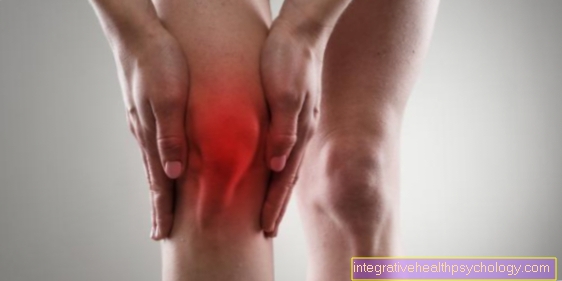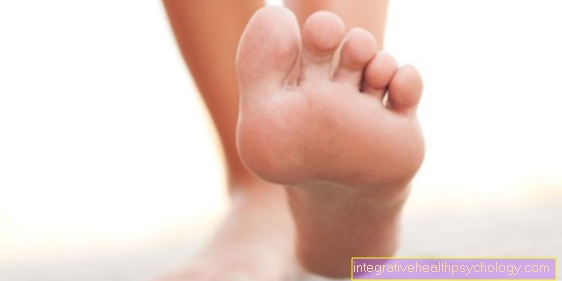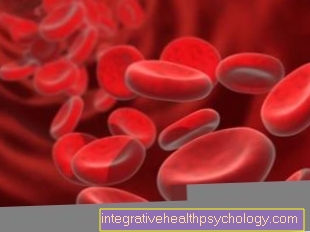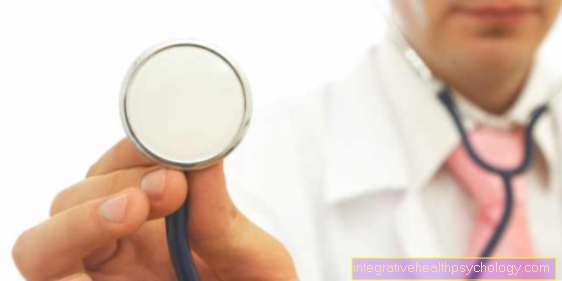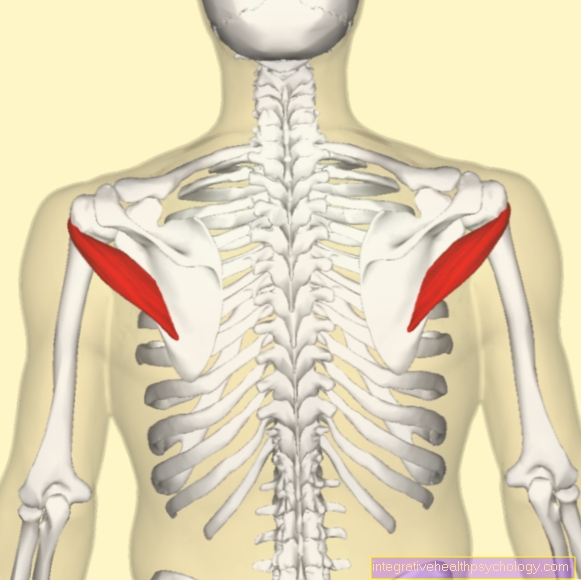Hangover after alcohol- what should you do?
definition
Under the slang term "Male cat" generally describes the symptoms and symptoms that occur after a mild to severe alcohol intoxication occur.

The hangover often describes subjective and unspecific symptoms of malaise. The hangover is too objectively not measurable, as every person reacts differently to alcohol consumption and age also plays a major role in the development.
The typical symptoms of a hangover exist as long as there is alcohol, and they have been mentioned over and over again throughout history. The term "hangover" is derived from the other clinical picture "Catarrh" from. The symptoms after drinking alcohol can be proven up to 3 days stop.
The remedies for a hangover are largely unexplored. However, there are various approaches with home remedies and medications that are supposed to accelerate the breakdown of alcohol and alleviate the symptoms. Their effectiveness has not been scientifically proven.
causes
The main cause of the hangover is alcohol. This triggers various processes in the body that can lead to the symptoms. The effects of alcohol mainly concern the liver, stomach, brain and kidneys.
The main cause of the headache is dehydration of the body. Alcohol affects the hormone "ADH" (antidiuretic hormone), which is usually released in the brain and acts on the kidneys. As a rule, this leads to the kidney reabsorbing water from the urine. If this mechanism does not occur, as is the case after alcohol, the body excretes much more water, which is why the urine excretion increases significantly.
In addition, the alcohol has an influence on the cerebellum, which is why it comes to dizziness and unsteady gait, which can persist the next morning.
Read more about the topic here: Dizziness and alcohol
Similar to most poisons and drugs, alcohol has to be broken down by the liver. The liver is stressed and can also be damaged under certain circumstances. When the alcohol is broken down, a chemical intermediate is created which, in addition to dehydration, affects and destroys individual proteins.
In addition, heavy alcohol consumption can irritate the gastrointestinal mucous membrane, which can cause nausea and vomiting.The vomiting in turn increases the drainage of the body and the hangover worsens.
Find out more about the topic here: Vomiting from alcohol
Also read: Alcohol intolerance
What should you do about a hangover?
There is a lot of good advice, home remedies, and prevention options for the hangover after alcohol. However, most of the funds have not been scientifically proven.
The main goal in the treatment of the hangover is to rid the body of alcohol and counteract dehydration through dehydration. Drinking water at home without medical aids is an appropriate method. You shouldn't drink a lot of water within a very short time. About 0.2 liters within 20 minutes are a reasonable amount. Otherwise the body excretes the water more quickly and can even worsen dehydration. Since some nutrients have been lost through dehydration and possible vomiting, the body should be supplied with a lot of fuels and so-called electrolytes. In the hospital, this can be done particularly effectively through infusions. At home, despite loss of appetite and nausea, the imbalance must be corrected through food.
Over-the-counter pain relievers can be used against the headache. Ibuprofen in particular is recommended as it has only minor side effects. Aspirin also hits the irritated stomach, whereas paracetamol puts a strain on the liver.
Learn more about this topic: Nausea after drinking alcohol - what helps?
Home remedies
Most of the effects of the hangover are cured at home, which is why suitable home remedies are used instead of infusions. The effect of this has not been scientifically proven.
Of the most important factor to treat hangover symptoms is the time. Over time, the water and electrolyte balance in the body equalize and the stomach recovers. To speed up this process, help above all else water, such as salty and high-energy dishes. For this reason, a hangover breakfast has become established for many people. Quiet and sleep especially help to bridge the duration and to make the symptoms more bearable.
The continued consumption of alcohol can also help to combat the symptoms. However, this is a vicious circle. Alcohol can initially relieve the headache and calm the stomach, but in order to combat the symptoms in the long term, further alcohol consumption is not advisable as this will trigger further symptoms after a certain time.
Concomitant symptoms
The symptoms the body exhibits in a hangover are mostly due to the strong drainage traced back.
Above all, these include the stabbing ones a headache, the Tremble, Difficulty concentratingn or dry skin and lips. The Irritation of the stomach lining often causes nausea, vomiting and loss of appetite the next day.
Sometimes there are also neurological symptoms the hangover, the origin of which has not been fully scientifically clarified. So anxiety and depression can occur after consuming alcohol. The so-called "film tear", which results in gaps in memory from the past few hours, is also typical. People who consume alcohol regularly over a long period of time can Addiction and withdrawal symptoms come. The nervousness, tremors and other neurological symptoms predominate, which are often satisfied with more alcohol.
You can find out more about the topic here: Alcohol addiction
Another very common symptom of alcohol hangover is that fatigue. This is mainly due to the sleep disorders that occur in connection with alcohol consumption. Fatigue and physical exhaustion can sometimes persist for up to three days after drinking alcohol. Fatigue and exhaustion increase especially in old age.
Sleep disorder
Alcohol and sleep create a vicious circle for many people. For many people, alcohol consumption is still an alternative therapy for sleep disorders. The reason for this is that alcohol makes you relaxed and tired, so falling asleep is easier.
The next morning, however, those affected are often more tired and exhausted. That's because alcohol significantly restricts the quality of sleep.
First of all, alcohol consumption leads to increased urination and thus to a nocturnal urge to urinate.
The feeling of thirst and the dryness of the body also limit sleep. In addition, however, sleep is much more restless and superficial when under the influence of alcohol. In addition, the alcohol suppresses the so-called "REM" sleep phases that the body needs to process impressions of the day and to mentally recover. As a result, even if the amount of sleep increases, the tiredness persists.
You can find out more about the topic here: sleep disorders
Duration
The duration of the hangover after alcohol can be about 3 days be.
This is mainly dependent on the amount of alcohol consumed, age, individual reaction to the alcohol and other circumstances.
In younger people who treat a hangover through a sensible diet and adequate rest and sleep, it can have subsided within a few hours to a day. The higher however the amount of alcohol drunk is the longer the disenchantment lasts and their consequences.
How can you avoid a hangover after alcohol?
The easiest way to prevent alcohol hangovers is to do this Amount of alcohol to to reduce.
Since the main symptoms of a hangover are related to dehydration, this can also be counteracted while consuming alcohol. An advisable tip is to add the alcohol to every glass of alcohol same amount in water drink afterwards. In principle, the more fluid you drink with the same amount of alcohol, the less the body dries out.
Also called the "basis" Meal before consuming alcohol has a good cause. The fatty foods slow down the absorption of alcohol, giving the body more time to counteract the dehydration.
A popular method is to before bedtime in Drink large amounts of water in a very short time. However, that is not necessarily advisablebecause the body cannot use such large amounts of water immediately and excretes a large part directly. This even leads to the fact that the following sleep becomes more restless due to the increased urge to urinate. Also Pain medication to be taken before sleep is not very meaningfull as their effects will largely wear off by the time you wake up.

